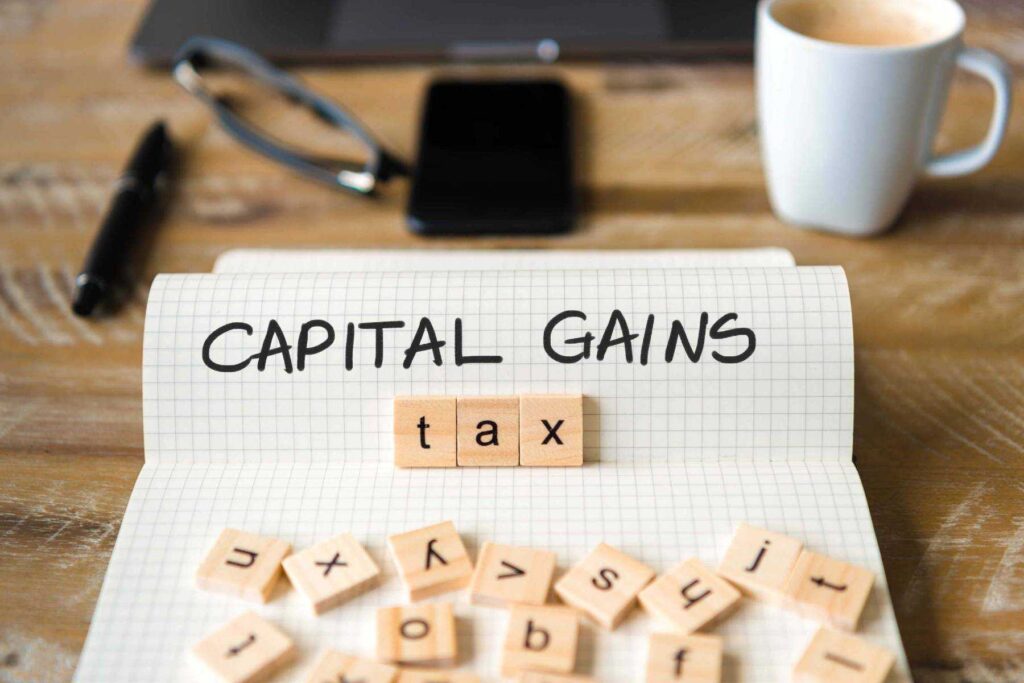Property and tax go hand in hand – and if you’re a landlord or planning on investing in property for the first time, one tax you’ll need to be aware of is capital gains tax.
Here, we’ll explain everything you need to know about capital gains tax on buy-to-let properties and we’ll look at how the rules could change in 2021…
Who pays capital gains tax?
If you sell something for more than what you paid for it, you could be liable for capital gains tax.
In simple terms, that’s how capital gains tax works, but of course there’s far more to it than that.
What do you pay capital gains tax on?
You pay capital gains tax on the difference between the price you pay for something and the price you sell it for.
This is known as the ‘gain’. Items that are liable for capital gains tax include:
• Personal possessions worth more than £6,000, but not cars
• Property that isn’t your main residence
• Property you let out, or use for business
• Shares outside of ISAs and PEPs
• Other business assets
Do landlords pay capital gains tax?
Property that is let out and isn’t a landlord’s main residence is liable for capital gains tax when sold.
The tax is payable on the ‘gain’, which is the difference between the price paid for the rental property and the price it’s being sold for.
Capital gains tax on rental property explained
Capital gains tax on buy-to-let property isn’t as simple as working out the ‘gain’.
There are other things you need to know, including:
• The rates of capital gains tax on buy-to-let properties
• The capital gains tax allowance
• Relief on capital gains tax
• Private Residence Relief and Lettings Relief
• How to calculate capital gains tax on a rental property
What percentage is capital gains tax on property?
The percentage rate of capital gains tax you’ll pay on buy-to-let property depends on which income tax band you fall into.
The income tax bands in the UK for the 2020/21 tax year are:
|
Tax band |
Income tax rate |
Income band |
|
Nil rate |
0% |
£0 – £12,500 |
|
Basic rate |
20% |
£12,501 – £50,000 |
|
Higher rate |
40% |
£50,001 – £150,000 |
|
Additional rate |
45% |
£150,000 + |
If you are in the basic rate income tax band, you’ll pay 18% capital gains tax on buy-to-let property.
If you’re in the higher or additional rate bands, you’ll pay 28% capital gains tax on property.
Capital gains tax allowance
The current UK capital gains tax allowance is £12,300 per person, meaning you pay no capital gains tax on the first £12,300 of any gain you make.
If you own your buy-to-let property with a spouse, you can double the allowance to £24,600.
Capital gains tax relief
To lower your capital gains tax bill on the sale of your buy-to-let property, you can deduct certain costs and expenses from your gain to work out your final capital gains tax bill. Those expenses could include:
• Estate agency fees
• Solicitor’s fees
• Stamp duty from the original purchase
• The cost of any improvements made between buying and selling, including extensions, conversions or energy efficiency modifications
You should also deduct any remaining capital gains tax allowance to work out your final bill.
Private Residence Relief and Lettings Relief
Those selling a property that is their main residence benefit from Private Residence Relief, which means no capital gains tax is payable.
Before April 2020, if you previously lived in a property that you now rent out, you could claim Lettings Relief on the first £40,000 of any gain when selling it, or £80,000 if owned as a couple. Also under the old rules, if your rental property had previously been your main residence for any period of time, the gain made over the final 18 months of ownership would qualify for Private Residence Relief.
The rules since April 2020, however, are:
• Lettings Relief is only available if you are in shared occupancy with your tenant
• The 18-month exemption period is reduced to nine months
How is capital gains tax calculated on rental property?
To calculate the amount of capital gains tax you owe on the sale of your rental property:
1. Add up your total taxable earnings to establish your income tax band
2. Deduct the price you’re selling your property for from the price you paid for it
3. Deduct your remaining capital gains tax allowance
4. Deduct any allowable costs and expenses
5. If your income means you’re already a higher or additional rate taxpayer, your whole gain will be taxed at the 28% capital gains tax rate
6. If you’re a basic rate taxpayer, add your gain to your income. You’ll pay 18% on the amount below £50,000 and 28% on any amount above
How long do I get to pay my capital gains tax bill?
Your capital gains tax bill on buy-to-let property must be paid within 30 days of the sale’s completion, alongside a capital gains tax return.
If you pay income tax through self-assessment, meanwhile, you’ll also need to include your capital gains tax liability on your annual return.
Can you sell a rental property and not pay capital gains tax?
If you sell a rental property that doesn’t make a ‘gain’ because you’re selling it for less than the price you paid for it, you’ll pay no capital gains tax.
Also, if the property’s ‘gain’, less any allowable deductions, is less than your remaining annual personal allowance, you won’t be liable for capital gains tax.
Will the rules on capital gains tax change this year?
With the Covid-19 pandemic having heavily impacted Treasury spending, the 2021 spring Budget on March 3 could include some changes to taxation.
Capital gains tax is one area that could be affected, with several options open to the Chancellor:
• To raise capital gains tax across the board by small amounts
• To equalise capital gains tax with income tax, meaning basic rate taxpayers pay 20% in capital gains tax, higher rate taxpayers pay 40% and additional rate taxpayers 45%
Further reading…
Keeping track of legislation changes when you’re a landlord is key – our guide outlines everything you can expect to happen in 2021.
We’ve also outlined all the property taxes you need to be aware of as a landlord here.




